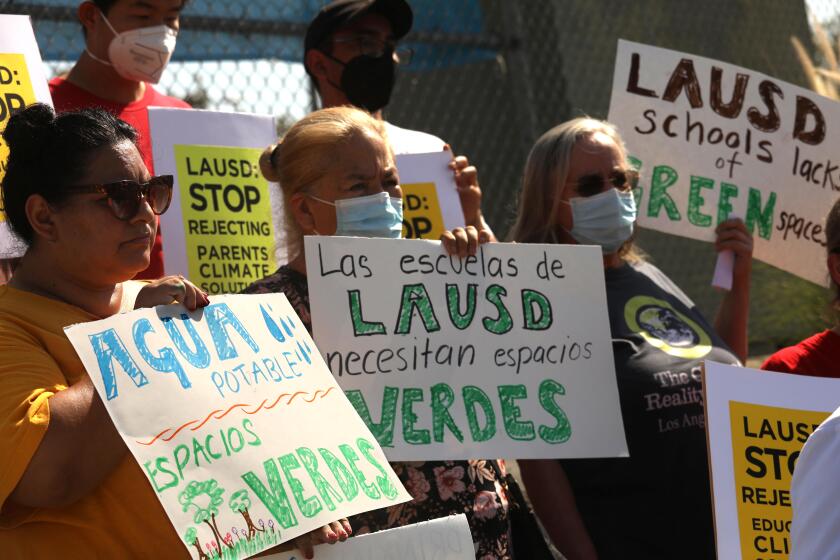Letters to the Editor: Undermining democracy is bad for business. Just ask Georgia

- Share via
To the editor: I don’t think belated corporate opposition to Georgia’s restrictive, racially targeted voting law is based on principle.
Rather, it comes from three realizations: that failure to speak up will lead to customers voting with their dollars; that a country with minority rule over the majority is inherently unstable; and that a country willing to treat voters unfairly will ultimately turn to corruptly controlling corporations for its own interests, as has happened in other places.
All three scenarios are really bad for business, especially for corporate executives and large shareholders.
A look at different countries’ economies around the world clearly shows that free and fair elections open to all, in a well-run democracy, are better for businesses as well as that country’s citizens.
Daniel Fink, Beverly Hills
..
To the editor: Nearly 100 years ago, the major opponents of socially conscious legislation were large corporations — such as Standard Oil and U.S. Steel — or press magnates like William Randolph Hearst (who spurned his initially liberal views). Labor unions were becoming powerful, and they flourished under the New Deal.
Who would have thought that the most influential supporters of democratic traits, with the demise of labor unions, would be large corporations or outfits like Major League Baseball? Delta Air Lines and Coca-Cola, both headquartered in Georgia, also wanted to protest Georgia’s restrictive voting law. The primary purpose of the legislation was to suppress Black suffrage in particular.
This corporate support of democracy is to be applauded — and bemoaned. Who would have thought that democracy was moribund enough to require minimal life support from its steadfast opponents, big corporations?
Roger Carasso, Santa Fe, N.M.
The writer is a professor emeritus of political science at Cal State Northridge.
..
To the editor: I lived in Georgia through the 1980s with my husband, launching a business and remodeling a Victorian house. I was a reporter and a columnist for the local paper, headed the Red Cross and served on local boards.
At first it was all dogwoods, camellias and invitations to church. This ambience turned to being told by neighbors that it “just wasn’t done” to eat lunch with my housekeeper, nor was it all right to invite her to a library fundraiser.
The day I decided it was time to leave this town of 20,000 was when we heard shouts outside the newspaper office, which was next to the police station and jail. I grabbed my pad and rushed out. An officer stopped me as I hurried to the entrance: “It’s nothing — just a [N-word] dropped dead.” This attitude prevailed with few exceptions.
Nothing that the Georgia Legislature does could surprise me. The best day of my life was seeing Georgia in the rearview mirror.
Ellen Williams, Carlsbad
More to Read
A cure for the common opinion
Get thought-provoking perspectives with our weekly newsletter.
You may occasionally receive promotional content from the Los Angeles Times.









